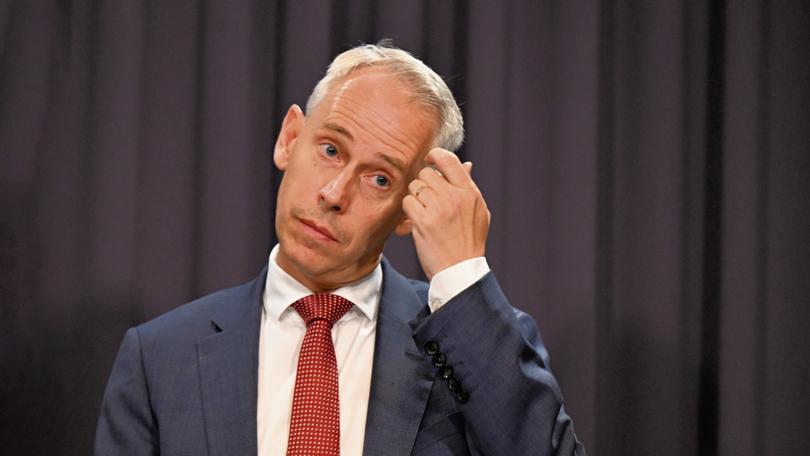Immigration detention saga: Home Affairs boss Stephanie Foster makes ‘no apology’ for tougher deportation laws
The Home Affairs boss is making “no apology” for the sweeping powers contained in the Federal Government’s deportation Bill, defending the legislation against a backlash from refugee advocates.

The Home Affairs boss is making “no apology” for the sweeping powers contained in the Federal Government’s deportation Bill, defending the legislation against a major backlash from migrant communities and refugee advocates.
Stephanie Foster said her department did not believe the legislation needed to be amended despite an avalanche of criticism, including from grassroots Labor members.
Ms Foster made the comments at the end of a Senate inquiry hearing into the Bill, which is designed to make it easier for the Commonwealth to deport foreigners who have no legal right to stay in Australia and are refusing to cooperate with authorities.
Sign up to The Nightly's newsletters.
Get the first look at the digital newspaper, curated daily stories and breaking headlines delivered to your inbox.
By continuing you agree to our Terms and Privacy Policy.More than 4500 people could be captured under the Bill, the inquiry heard, although Ms Foster suggested the powers would only be used as a “last resort”.
Labor last month tried and failed to ram it through Parliament in an apparent attempt to pre-empt a High Court case involving a man who is refusing to cooperate with Australian authorities due to fears he could be harmed if he was deported back to Iran.
The case will be heard on Wednesday.
It marks the latest chapter in the ongoing immigration detention saga, which erupted after last year’s bombshell High Court ruling forced the release of 152 detainees – including murderers, sex offenders and drug traffickers.
The new legislation would allow the Government to impose a prison sentence of between one and five years on asylum seekers who refuse to co-operate with their deportation.
It would not apply to people found to be refugees.
Under arguably its harshest provision, the immigration minister would be able to deny visa applications from countries whose governments do not accept involuntary deportations, such as Iran, South Sudan and Zimbabwe.
The power to blacklist entire countries has sparked fear among migrant communities and triggered a backlash from Labor’s youth wing and grassroots pro-refugee group, which described it as a “huge over-reach”.
WA’s large Zimbabwean community are worried their native country could be targeted under the regime, leading to family separations.
Speaking ahead of Monday’s hearing, Perth-based Zimbabwean community leader Salome Mbenjele said news of the legislation was met with “shock and disbelief” by her compatriots.
She implored MPs to consider the enormous economic and cultural value the Zimbabwean diaspora brought to Australia.
“When our people are coming here, they are not just coming to put a burden on the Government – they are coming to really build Australia and be productive members of the community,” she told The West.
Responding to concerns about the power to blacklist countries, Immigration Minister Andrew Giles said the decision would have to be in the “national interest”.
The Immigration Minister would need to consult with the Prime Minister and Foreign Minister before a country was designated.
Mr Giles said the broader powers were necessary because the Federal Government had “very limited” options to deal with foreigners – including criminals – who had exhausted legal avenues to remain in Australia and whose home nation wouldn’t accept them.
“What we are trying to do through this Bill … is to have a few more tools in our toolkit to close this loophole,” he told ABC radio.
Ms Foster told the hearing that a mechanism allowing the Government to deport non-citizens who had no legal right to be in the country was “fundamental to the integrity” of the immigration system.
“I make no apology for that,” she said.
